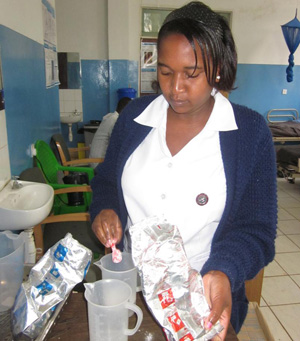Most couples may have to use assisted reproduction by 2045, a professor has warned.
Shanna Swan – a professor of environmental medicine and public health at Mount Sinai school of medicine in New York City – has made the prediction in light of declining sperm counts, which she found had more than halved in the past 40 years in a study published in 2017.
The rate of decline is a threat to the survival of our species, Swan has previously warned. Now she has predicted that people may rely on the likes of IVF to get pregnant in less than 25 years time.

Speaking to The Guardian, she said: “It is serious. If you follow the curve from the 2017 sperm-decline meta-analysis, it predicts that by 2045 we will have a median sperm count of zero.
“It is speculative to extrapolate, but there is also no evidence that it is tapering off. This means that most couples may have to use assisted reproduction.”
So, what’s happening to all of our swimmers? Well, Swan believes we should be a lot more concerned about the impact of chemicals – particularly phthalates, which are used to make plastic flexible. They’re employed regularly throughout the food production and packaging process and can lower testosterone levels.
Swan said: “I am directly speaking to this hidden problem people don’t like to talk about, which is their sub-fertility or reproductive problems, and how that is tied to the environment.
“People are recognising we have a reproductive health crisis, but they say it’s because of delayed childbearing, choice or lifestyle – it can’t be chemical. I want people to recognise it can.
“I am not saying other factors aren’t involved. But I am saying chemicals play a major causal role. It is difficult to use that word, ’cause’, but it’s a body of evidence. We have mechanisms, animal studies, and multiple human studies.”

There are a few simple things you can do to minimise your exposure to these chemicals.
Swan advised: “People of reproductive age, particularly those planning pregnancy or pregnant, should be aware that everything they bring into their home has the potential to contain these chemicals.
“To the extent possible, eat unprocessed foods – a bunch of carrots, potatoes that you cook yourself – as this should reduce exposure through plastic. Also, when cooking, don’t use Teflon or anything coated and don’t microwave in plastic.”
As for whether we can still turn the sperm tide (apologies for that image), Swan is hopeful.
She said: “I think we can. We have the ingenuity and the resources to do it. But we need a recognition of the problem and the will to change.”
You can learn more about this in Swan’s book, Count Down: How Our Modern World Is Threatening Sperm Counts, Altering Male and Female Reproductive Development, and Imperiling the Future of the Human Race.




